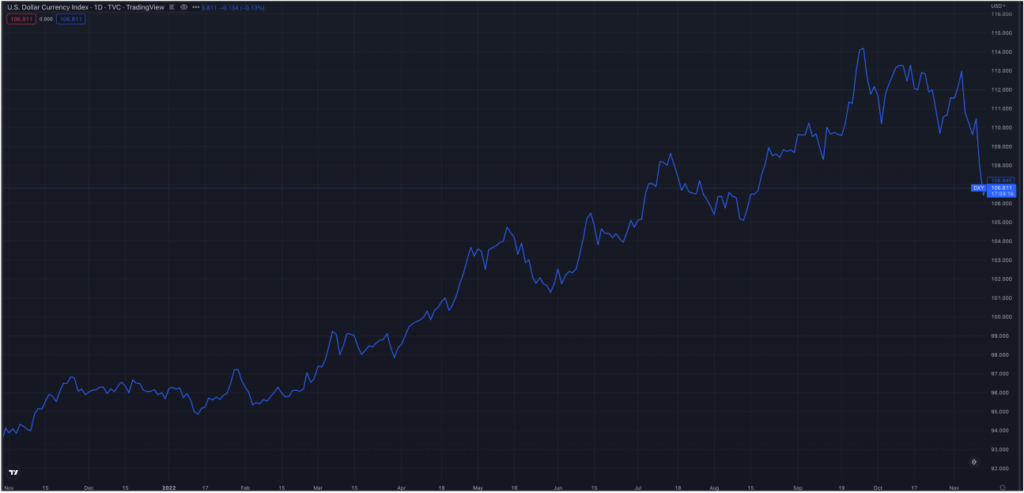Impact Of Lower Inflations On USD Majors
(Click on image to enlarge)

The US dollar took a beating last week when inflation numbers came in below expectations. The DXY index, which tracks the dollar’s performance against six other major currencies, is now trading at levels not seen since August, 7% below its September peak.
As the market started to believe in the prospects of a “soft landing” economic scenario, the dollar fell. This scenario would involve the US Federal Reserve’s (the Fed’s) recent string of interest rate increases slowing economic growth enough to bring inflation down, but not so much as to push the economy into a recession.
A soft landing would be great news not just for the US, but also for the global economy. Fewer future rate increases and improved financial conditions would benefit the global economy, and if the outlook for global growth improves, then investors will gain confidence in assets further afield. This explains why the dollar fell, and why riskier assets like emerging markets stocks and currencies, as well as commodities, rebounded so strongly last week.
Implications
As we explained here, a weaker dollar has been one of the biggest headwinds for the global economy and markets this year. If the greenback weakens, it could give the global economy some welcome relief, and boost assets that are most sensitive to its strength – like emerging market stocks and gold, for example.
Although inflation is still high, the recent interest rate hikes may help to slow the economy down to a more manageable level.
However, this “soft-landing” scenario is not guaranteed. So, while the US dollar may weaken in the coming months, it may take more than just one month of lower inflation data to change its course.
More By This Author:
Key Market Insights November 8
What’s Next After BoE Hiked Rates by 0.75%?
Five Factors To Drive SP500 Higher This Year
Disclaimer: CFDs are complex instruments and come with a high risk of losing money rapidly due to leverage. On average around 80% of retail investor accounts loose money when trading with high ...
more


